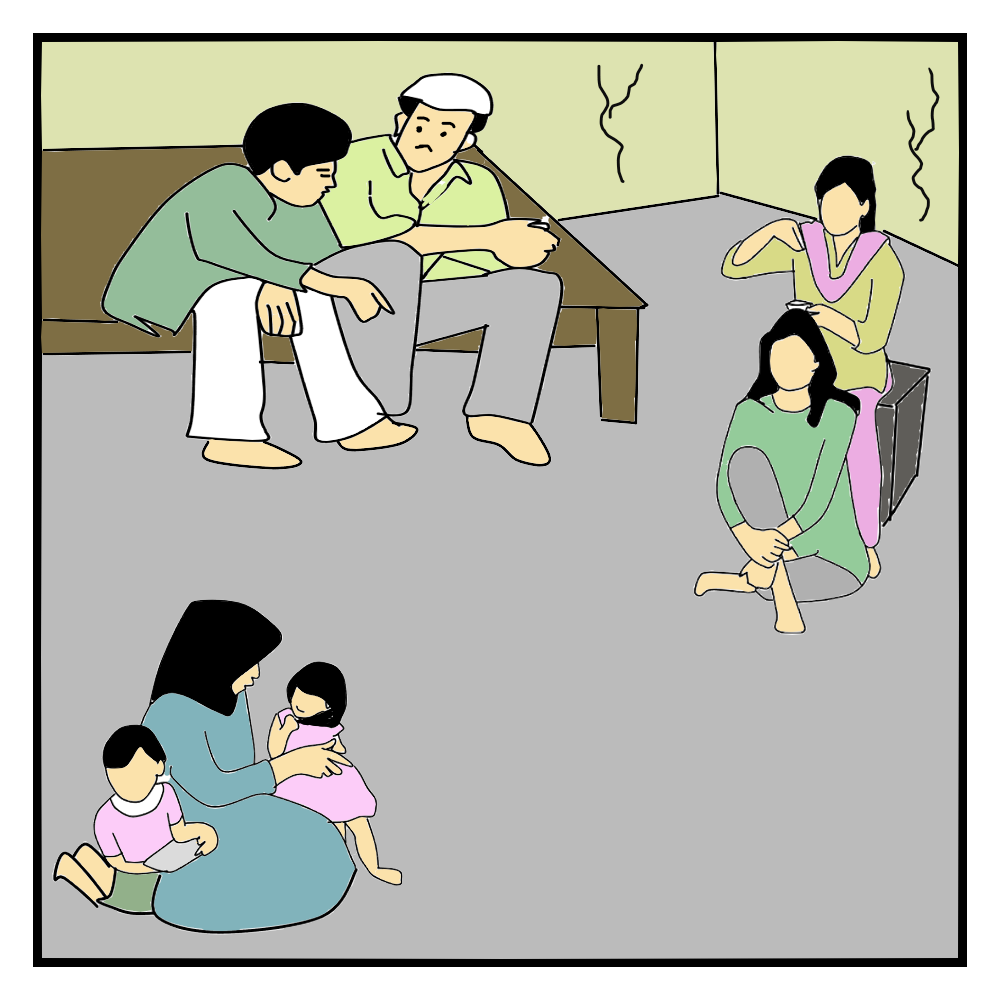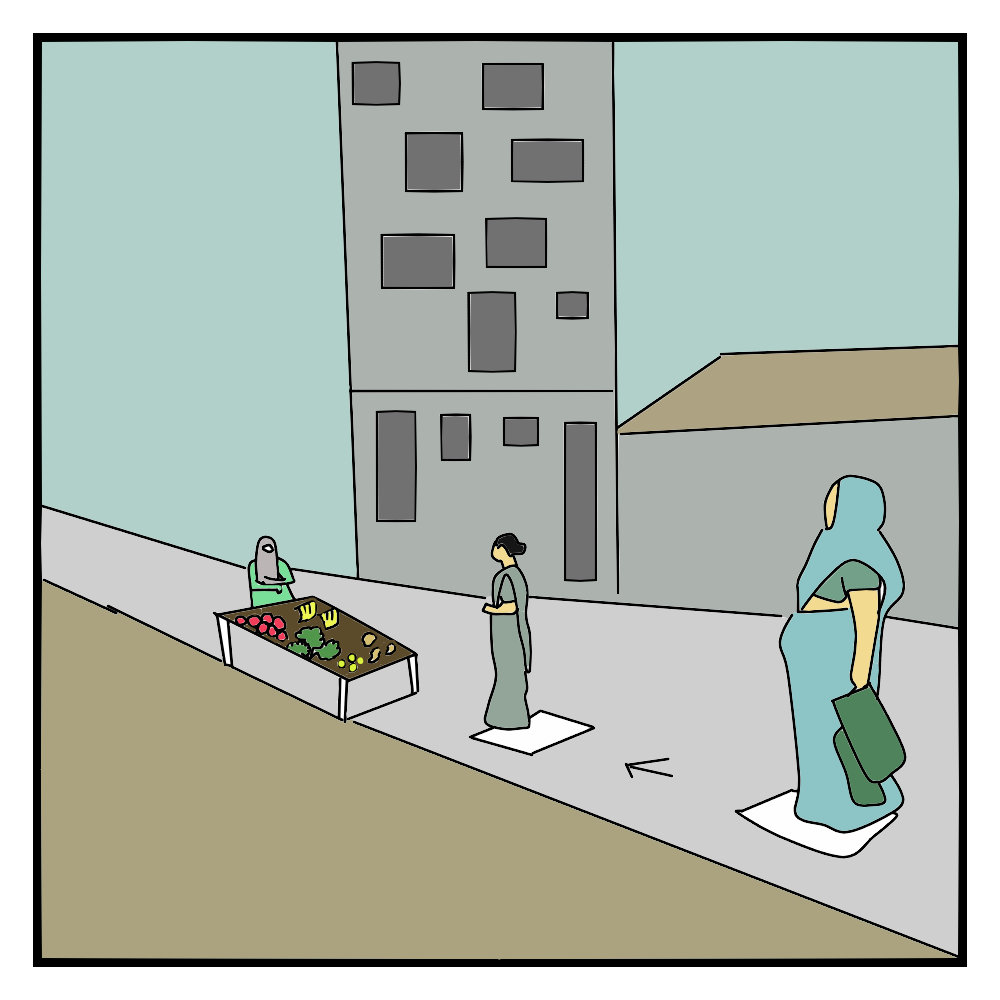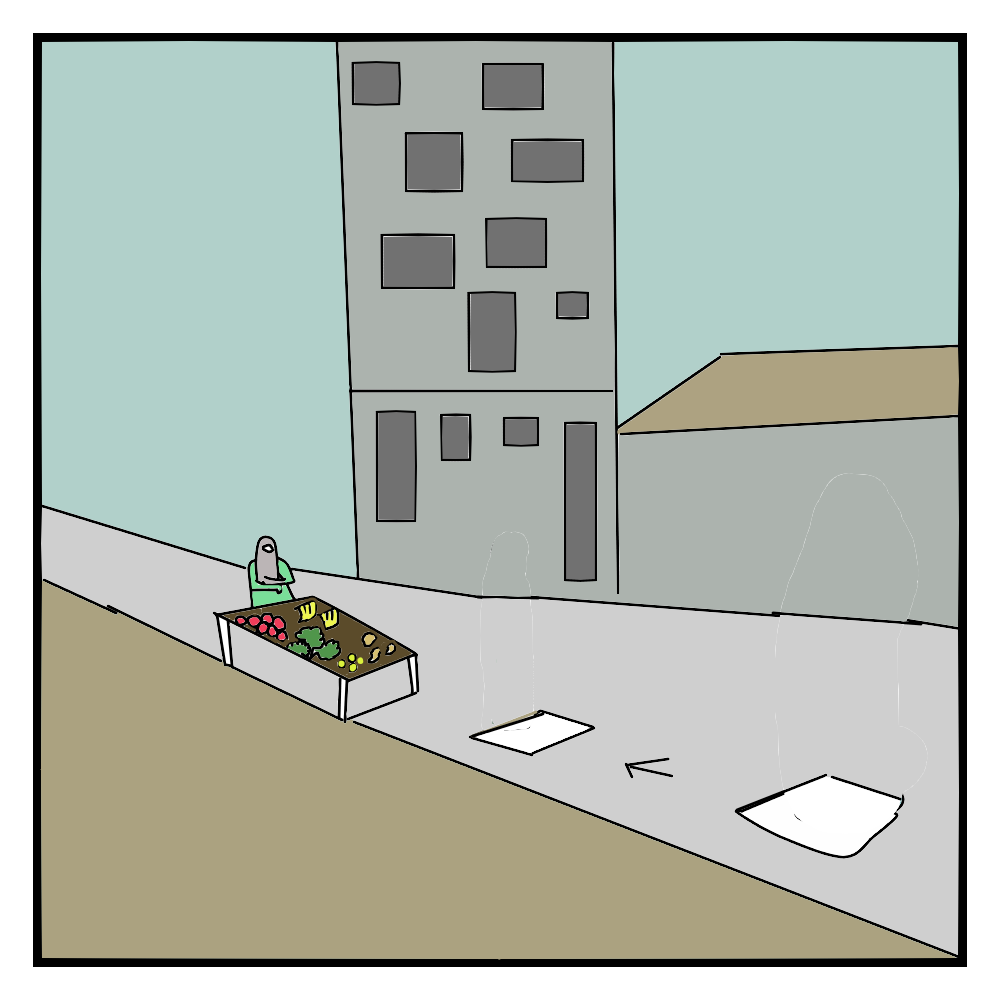August, 2020
Trials and tribulations of a Delhi-based street vendor couple during the Covid-19 pandemic, 2020
5 minutes read
Suhaila is a street vendor based in Delhi. She sells vegetables- tomatoes, onions, potatoes, okra, etc. and sometimes even fruits inside the Dreamview Apartments compound in Sarojini Nagar. She lives with her husband Salim, four children and her mother-in-law Sultana, in the Raghu Bir Nagar slums located right opposite to the Sarojini Nagar market where Salim has a humble tea stall. Her oldest daughter, Zinat, who is 14, often helps her with the vending after school. Up until last year, their 16-year-old son Tarikh used to help his father at the stall. But now Salim makes him spend his time on tuitions. Suhaila dreams of him becoming an engineer someday.
One day, during the first week of March, Salim came back early from work. Seeing his troubled appearance, Suhaila asked him what the matter was. Footfall at Sarojini has decreased alarmingly in the last couple of weeks, he said. Today I had less than a quarter of the usual number of customers. It’s this new virus, Baba, Tarikh suddenly chipped in. It has reached Delhi too now. People are scared to leave their homes. Suhaila recalled that many of her customers had started covering their faces for a while now. I remember, Mrs. Malhotra (one of her regular customers) told me about this yesterday. I didn’t quite understand it then, though.

By mid-March, the only people who bought chai and pakoras from Salim’s stall were mostly other vendors. The news about the 21-day lockdown was met with shock and uncertainty. Suhaila could continue selling fruits and vegetables. What about you? She asked her husband and then looked at Tarikh, does a tea stall fall under “essential activity”? Even he wasn’t sure. It doesn’t matter, a dejected Salim said. Not a soul comes to Sarojini anymore and I can’t afford any more losses.
Meanwhile, things weren’t easy for Suhaila either. She still had enough customers to get by.
Many of them chose to get their groceries home-delivered by stores instead. Those who did buy from her wore masks and a lot of them didn’t even touch the vegetables. She had stopped bringing Zinat along as she was scared for her family’s health. They couldn’t afford masks or sanitizers so they had to be extremely precautious.

Salim had initially thought of waiting it out until the situation returned to normal. However, the condition seemed to be worsening and it was getting increasingly hard to meet the expenses with the money from Suhaila’s stall therefore, he decided to look for other options. Suhaila was glad to hear this. Sitting at home while his wife went to work had been making him irritable. She was afraid he might start hitting and abusing her again, something he hadn’t done in years. Days later, Salim switched to packaged goods like biscuits, masks, etc. They still weren’t sure if this was permitted. Everyday, Suhaila feared him getting arrested by the Police.
More than a month passed like this. Income was grossly insufficient but they were able to manage somehow. The children stayed home due to the schools being shut. Suhaila was aware that having an internet connection would help Tarikh with his studies during the absence of tuitions but that was out of question in the present situation.
One day, Suhaila heard from her friend Poonam, a domestic worker who used to work in Dream View Apartments, that some families there had contracted the disease. This news was frightening to everyone in the family. Ammi’s health has been worsening, and what about the children? There is no way to go back to Meerut, either.
However, the very next day, she was asked by the Residents Welfare Association (RWA) to move her stall outside the complex. She was, in fact, relieved to hear this. Standing under the scorching sun all day is better than putting my entire family at risk.

The lockdown was relaxed by June. Footfall in Sarojini was gradually increasing. Even so, Salim was hesitant to go back to selling chai and snacks. After repeated convincing from his fellow vendors, he finally decided to get himself registered with the National Association of Street Vendors (NASVI). On hearing about this, Suhaila demanded to get registered too. She had heard of the organization before but never wished to get involved in the “hassle” before this.
Salim was given safety training by NASVI through Zoom sessions that consisted of hygiene practices, and gave him a certificate on completion. Salim noticed that the number of customers, although still much less than usual, had risen after he proudly displayed the certificate outside his stall.
A couple of weeks later, Suhaila received some great news. Street vendors like her were being provided Rs. 10,000 loans by the government under the Pradhan Mantri Street Vendor’s AtmaNirbhar Nidhi Scheme.
There is uncertainty all around. Situation has improved but the fear still persists. The number of customers has been increasing gradually for both Suhaila and Salim. Meanwhile, cases in their slum have been on the rise. Suhaila has never faced such a catastrophe before. She is doing what she can.
References
- Remote interviews conducted by the team at Women’s Identity and Progress
- Wikipedia: COVID-19 pandemic in Delhi
- NASVI: Training of street food vendors amid COVID – 19

Leave A Comment